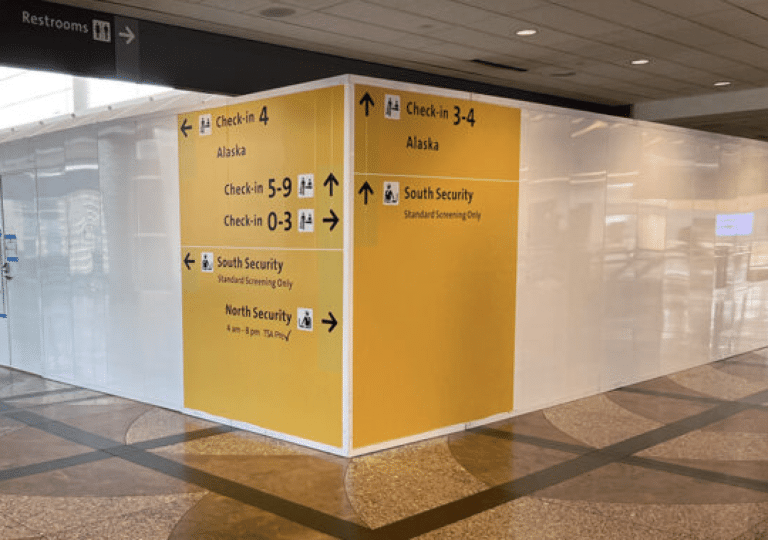Airports are the backbone of global marketplaces and international travel. And in large countries like the United States, the aviation industry helps maintain the economic stability of the country.
However, as the demand for air travel continues to grow, so does the need for airport expansion. But expanding airport infrastructure presents unique challenges, which make the need for temporary construction an important component of airport expansion.
Challenges of Airport Growth
Unlike other types of infrastructure within the global economy, airports require significant space, strategic location, and strict adherence to regulatory requirements.
These factors make it difficult to build new facilities quickly and efficiently. In fact, the growth of the larger economy is sometimes stunted by the ability to import and export manufactured goods and materials.
Therefore, airports need a process—temporary construction—to continue without interrupting ongoing operations.
The Role of Temporary Construction Walls in Airport Projects
Maintaining airport operations during construction requires careful planning and the right tools, and temporary construction walls are one such tool, which is minimizing those disruptions.
These walls enable airports to continue functioning while construction is underway, and they help ensure passengers feel safe and comfortable along the way.
Here’s how:
Temporary construction walls are particularly effective in controlling the spread of dust and debris generated by construction activities. Uncontrolled dust can pose serious health and safety risks to both passengers and staff. Not to mention, dust can interfere with sensitive airport equipment, such as moving walkway and baggage handling systems
Traditional vs. Modern Temporary Wall Systems
Traditionally, temporary construction walls were built using studs and drywall, essentially creating permanent structures that had to be dismantled and discarded once the project was complete. Although these walls were effective, they were time consuming and wasteful of resources.
Modern temporary wall systems, such as those offered by Swiftwall®, provide a more efficient and sustainable solution.
These prefabricated, modular systems are just as durable as traditional drywalls but can be installed up to 5x faster, and they are reusable, which reduces both the waste and costs associated with airport construction projects.
Swiftwall®: The Best in Temporary Construction Wall Systems

Swiftwall® offers a range of temporary wall systems designed to meet the unique challenges of airport construction and expansion.
- Swiftwall® Pro is the flagship product, featuring a simple track-and-panel design that installs quickly and efficiently. Despite its lightweight construction, Swiftwall® Pro is incredibly durable, with a non-hygroscopic ABS finish on both sides for a polished appearance. It also boasts a sound rating of STC21 to minimize noise disruptions and is compatible with graphics and signage, making it ideal for maintaining a professional look during construction.
- Swiftwall® Flex takes all the benefits of Swiftwall® Pro and adds adjustable panels, which allows it to expand up to 2.75 feet higher. This flexibility also makes it the perfect choice for areas with variable ceiling heights.
- Swiftwall® Max is designed for the most demanding projects, offering superior durability for load-bearing applications, including wind and seismic resistance. Although i’ts more robust, Swiftwall® Max installs 3X faster than traditional wall systems and is better suited for interior and exterior use.
Another thing to keep in mind: these modern wall systems have been successfully deployed in some of the largest airport construction projects across the United States.
Optimize Your Aviation Project with Swiftwall®
Needless to say, airport construction projects are complex—and they require the best resources and techniques to succeed.
Swiftwall®’s modular temporary construction wall systems offer the ideal solution for minimizing disruptions and ensuring efficient construction processes.To learn more about how Swiftwall® can support your next aviation project, contact our experts today.


